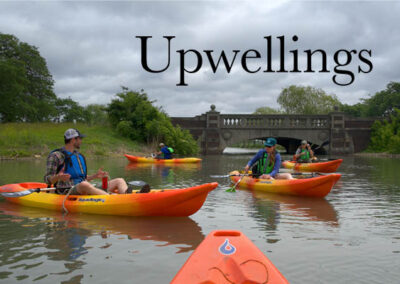
ANN ARBOR — A new round of research projects, supported by Michigan Sea Grant, will focus on climate change in Grand Traverse Bay area, remediation of a former mining site in the Upper Peninsula, and expansion of Michigan’s aquaculture industry. More than $650,000 in primary and matching funds will be granted to research teams at Michigan State University and Michigan Technological University. The three research projects are set to start in 2012 and will be conducted over three years.
“These projects are exciting, and we’re proud to support them,” said Jennifer Read, Michigan Sea Grant Research Coordinator/Assistant Director. “They will go a long way in helping state agencies, communities and others make challenging decisions. These projects are particularly relevant for Michigan — now and well into the future.”
Useful Results
Michigan Sea Grant supports research projects that follow an Integrated Assessment approach — a collaborative research process that helps connect people, science and policy. The research team works closely with policy makers, business leaders and community members to examine all sides of the issue, guide the assessment and ensure that the results are relevant and useful.
Project Details
Title: Expansion of Michigan’s Existing Commercial Aquaculture Activities into a Major Sustainable Seafood Production Industry
PI: Christopher Weeks, Michigan State University
Sea Grant Funds: $149,301 | Matching Funds: $98,476
Summary: This project is designed to identify and address causes and consequences of the current underdeveloped aquaculture industry in Michigan. The research team will set out to:
- Identify policy and management actions that would support an ecologically safe, efficient and vibrant aquaculture industry in the state;
- Provide important social and economic information about the benefits associated with an expansion of Michigan’s seafood industry; and
- Develop a strategic action plan for expanding the state’s current commercial aquaculture program into a major sustainable seafood industry.
Title: Integrated Assessment of Torch Lake Area of Concern
PI: Noel R. Urban, Michigan Technological University
Sea Grant Funds: $119,339 | Matching Funds: $59,677
Summary: Torch Lake, located in the Keweenaw of Michigan’s Upper Peninsula, was impacted by copper mining from the mid-1800s to the late 1960s. Because of several persistent issues such as fish tumors, degraded benthos (lake bottom environment) and fish-consumption advisories, the U.S. Environmental Protection Agency (EPA) listed Torch Lake as an Area of Concern (AOC) in 1987. The EPA has conducted a site cleanup and the Public Advisory Council petitioned to delist the site as an AOC. However, the state determined that some issues persist.
The research will combine existing information on Torch Lake with historical information that has not been previously compiled (from archives, personal histories, etc.) in order to:
- Provide a comprehensive picture of the history of the area.
- Educate and engage stakeholders.
- Ultimately supply information that can be used to help remediate the site where needed.
Stakeholder involvement and outreach will be key for the project. Results will be reported to the Michigan Department of Environmental Quality.
Title: Quantifying the Impacts of Projected Climate Changes on the Grand Traverse Bay Region: An Adaptive Management Framework
PI: David Hyndman, Michigan State University
Sea Grant Funds: $149,974 | Matching Funds: $76,328
Summary: Great Lakes coastal communities are already feeling the impacts of climate change and variability. Communities across the Grand Traverse Bay region have witnessed changes in lake ice cover, seasonal precipitation, air and lake temperatures and storm severity. These changes have occurred along with population growth and urbanization across the watershed.
The research team will conduct an Integrated Assessment to examine the potential risks that climate variability and change could bring to Grand Traverse. The project will consist of interactive workshops and technical assessments conducted by an interdisciplinary team from Michigan State University. The team will seek to better inform stakeholders and the scientific community about the vulnerability of the Grand Traverse Bay to climate variability and change, and will begin a process of adaptive management that should ultimately improve the region’s ability to respond to and mitigate the impacts of change.
Fact sheets and more information available at: http://www.miseagrant.umich.edu/research/projects/
Contact: Jennifer Read
Looking for a great deal on your Michigan vacation? Use our Booking promotional code to save on your stay with Michigan Sea Grant. Don’t miss out on this opportunity to explore the wonders of the Great Lakes.


